Will Cramer, Campbell and Hoeven torpedo bipartisan health care deal?
(BISMARCK, ND) – Yesterday’s announcement of a bipartisan health care deal was met with unsurprising silence from North Dakota’s Republican leaders Rep. Kevin Cramer, senate candidate Tom Campbell, and U.S. Sen. John Hoeven – all of whom previously supported efforts to eliminate health care protections for tens of thousands of North Dakotans and totally dismantle Medicaid.
“Congressman Kevin Cramer, state Sen. Tom Campbell and U.S. Sen. John Hoeven all supported efforts to kick tens of thousands of North Dakotans off their insurance, dismantle Medicaid and spike costs by sowing chaos in the insurance marketplace,” said Democratic-NPL executive director Scott McNeil. “Now, we have a different approach, a bipartisan path forward that incorporates ideas from a wide range of stakeholders and was crafted through a normal, open legislative process. While some Republican leaders are so bent on scoring political points, they have signaled they might not support the bipartisan Alexander-Murray deal, North Dakotans are anxiously wondering where Cramer, Campbell and Hoeven stand.”
“It’s also worth noting that Cramer, Campbell and Hoeven all supported the original Senate repeal bill, which actually included two years of funding for CSRs,” added McNeil. “It would be staggeringly hypocritical to oppose a truly bipartisan deal over the same funding that was included in a bill they previously supported.”
Alexander-Murray was crafted by a bipartisan group of 30 U.S. Senators, including Sen. Heidi Heitkamp, and incorporates input from numerous governors, state insurance commissioners, patient advocates, health care providers and insurance companies. It has already received praise from health experts and lawmakers across the ideological spectrum – even including members of the conservative House Freedom Caucus – for taking much-needed steps to stabilize insurance markets and lower costs for consumers.
The Alexander-Murray deal would:
“Congressman Kevin Cramer, state Sen. Tom Campbell and U.S. Sen. John Hoeven all supported efforts to kick tens of thousands of North Dakotans off their insurance, dismantle Medicaid and spike costs by sowing chaos in the insurance marketplace,” said Democratic-NPL executive director Scott McNeil. “Now, we have a different approach, a bipartisan path forward that incorporates ideas from a wide range of stakeholders and was crafted through a normal, open legislative process. While some Republican leaders are so bent on scoring political points, they have signaled they might not support the bipartisan Alexander-Murray deal, North Dakotans are anxiously wondering where Cramer, Campbell and Hoeven stand.”
“It’s also worth noting that Cramer, Campbell and Hoeven all supported the original Senate repeal bill, which actually included two years of funding for CSRs,” added McNeil. “It would be staggeringly hypocritical to oppose a truly bipartisan deal over the same funding that was included in a bill they previously supported.”
Alexander-Murray was crafted by a bipartisan group of 30 U.S. Senators, including Sen. Heidi Heitkamp, and incorporates input from numerous governors, state insurance commissioners, patient advocates, health care providers and insurance companies. It has already received praise from health experts and lawmakers across the ideological spectrum – even including members of the conservative House Freedom Caucus – for taking much-needed steps to stabilize insurance markets and lower costs for consumers.
The Alexander-Murray deal would:
– Restore critical Cost-Sharing Reduction payments that help keep health insurance affordable for as many as 42,000 North Dakotans, but were cut off by the administration.
– Restore funding for outreach and enrollment, including health care navigators – organizations that help Americans enroll in health insurance options that meet their needs – which was slashed by 93 and 96 percent for two of North Dakota’s three navigators.
– Create a Copper Plan insurance option that would provide a new, lower cost, option for individuals and families. This is a measure Sen. Heitkamp has been advocating for since 2014.
– Offer more flexibility for states to be innovative with how they ensure coverage for families. States would still be required to offer comprehensive insurance, cover the same number of individuals, and comply with the essential health benefits in the health reform law.
-30-

